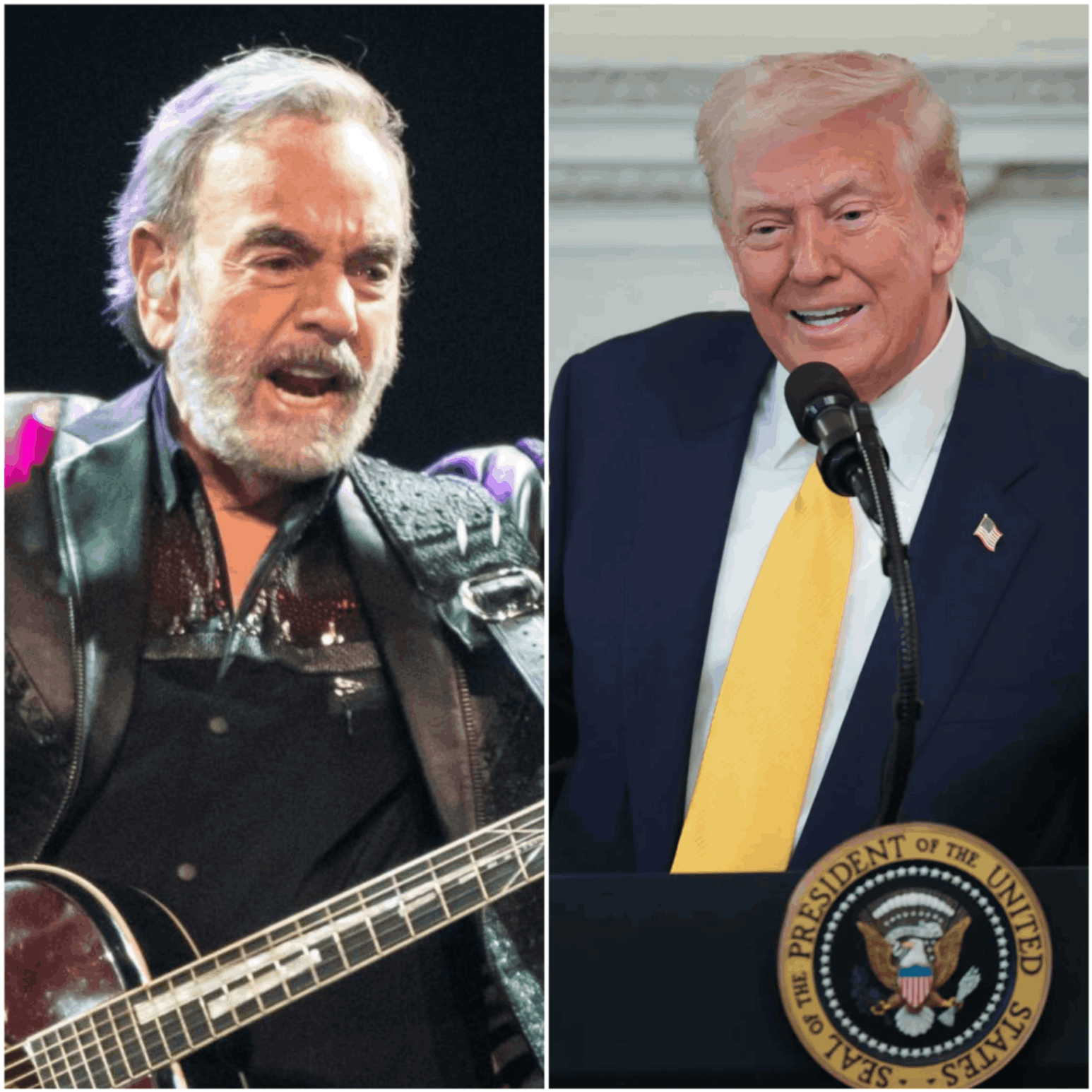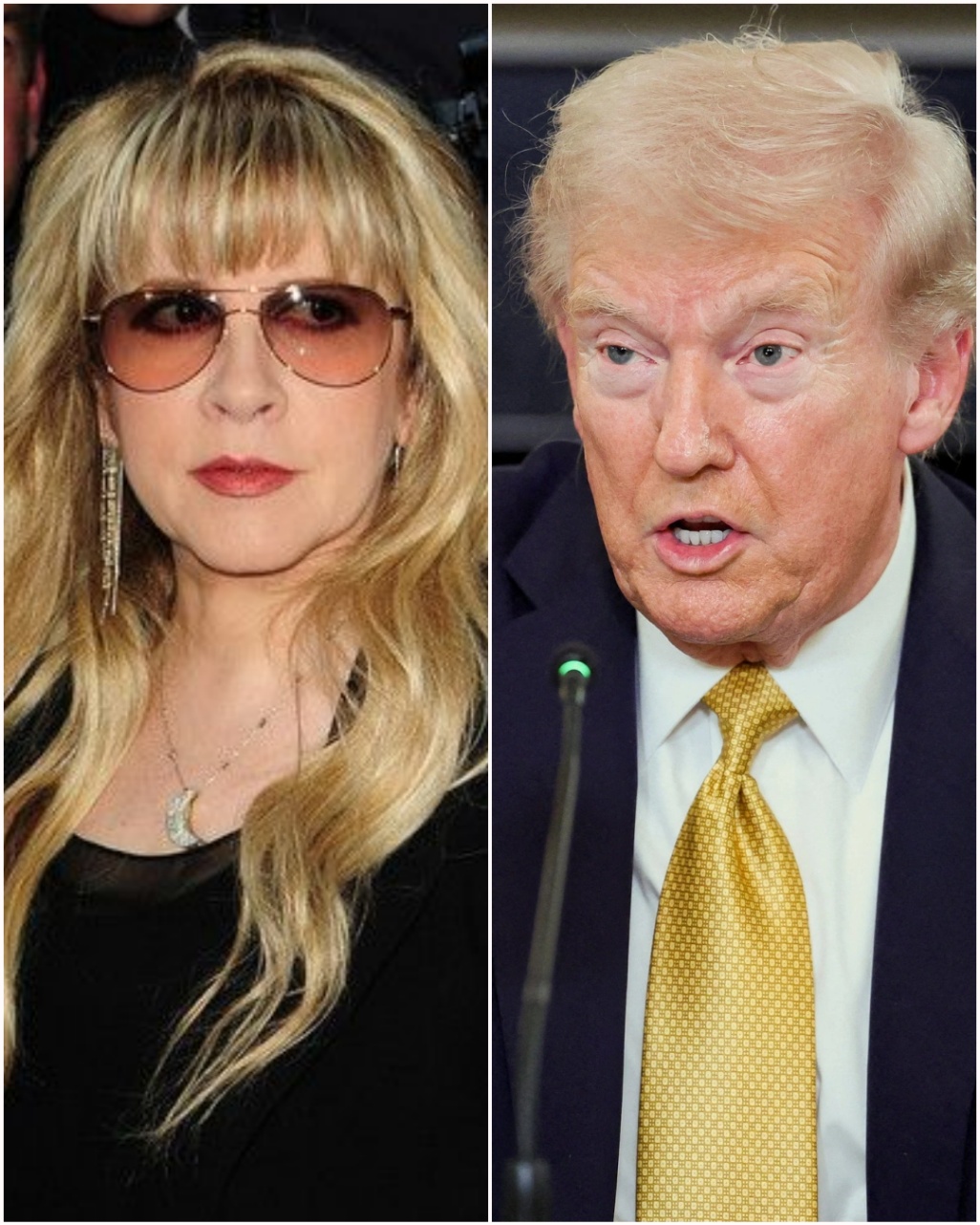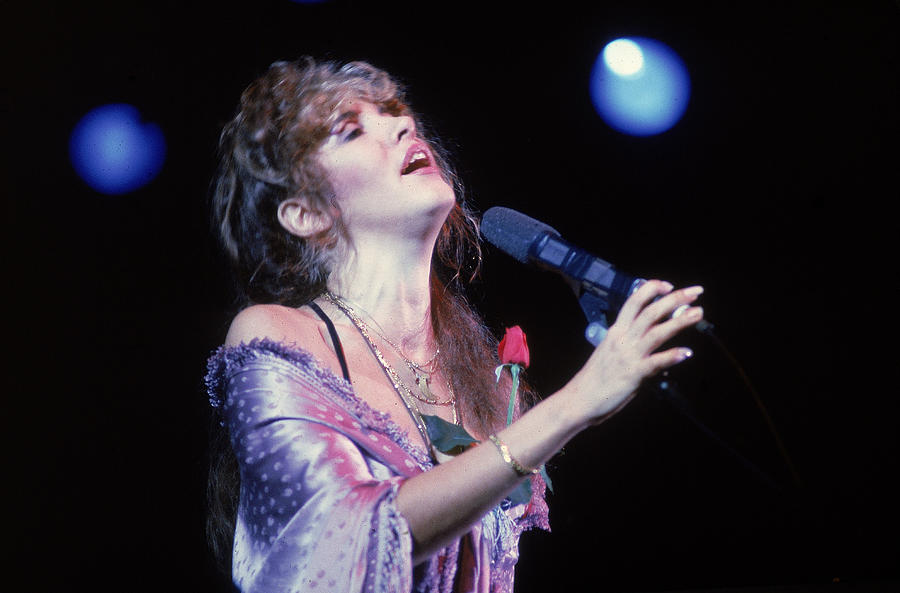



It began with a familiar guitar riff — the haunting, spiraling opening of “Edge of Seventeen.”
But instead of a concert hall, it echoed across a Texas rally stage, blasting over speakers as Donald Trump waved to the crowd.
Because somewhere just beyond the barricades, the woman who wrote it — Stevie Nicks, the ethereal voice of Fleetwood Mac — was watching.
And she wasn’t staying silent.
As the rally continued inside, word spread outside that Nicks was nearby.
Under a swirl of cameras, she stepped before reporters — composed, steady, shimmering in her signature black shawl.
Inside, Trump caught wind of Nicks’ comments.
Leaning toward the mic, he smirked.
For a few seconds, silence fell. Even the loudest voices stopped shouting.
Then, almost instantly, social media exploded.
Within an hour, #StevieVsTrump, #EdgeOfSeventeen, and #MusicIsForThePeople were trending worldwide.
Fans flooded platforms with messages of support:
“Stevie Nicks just gave a masterclass in dignity.”
“That’s how you use your voice — not for politics, but for principle.”
“Music belongs to the people, not to power.”
Even fellow artists joined in.
Sheryl Crow tweeted, “Stevie said what we’ve all wanted to say.”
Brandi Carlile wrote, “Grace under fire. Again.”
For Stevie Nicks, “Edge of Seventeen” has always carried layers of meaning — grief, womanhood, independence.
Written after the deaths of her uncle and John Lennon, it was never meant as an anthem of division.
It was — and is — a song about endurance.
“It’s about what it feels like to lose and keep going,” Nicks once said in a 1981 interview.
“It’s not about politics. It’s about the human spirit.”

Then, true to form, she dropped the mic — literally — and walked off under the soft Texas moonlight.
No anger. No grandstanding. Just truth.
By dawn, millions had watched the video.
Commentators called it “a defining moment for integrity in art.”
Others simply called it “Stevie being Stevie.”
“She said what a lot of musicians have wanted to say for years,” one analyst noted.
“If you use music to divide, you’re missing what makes it powerful.”

At 77, Stevie Nicks has long transcended labels — rock star, poet, feminist icon, survivor.
She has always stood for something bigger: the unbreakable belief that art should heal, not harm.
It wasn’t a concert.
It wasn’t a protest.
It was a moment — pure, human, and unforgettable.
A woman reclaiming her song.
A voice reminding the world that integrity still has a sound.
